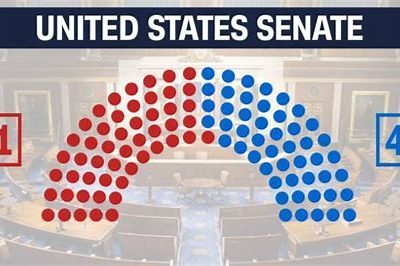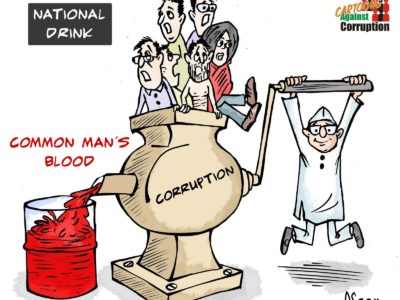The Case for Co-Benefits
Ignoring co-benefits violates well-established legal principles.
The Trump Administration is moving toward the view, long popular in industry, that when it regulates a pollutant, EPA can consider only the health impacts of that particular pollutant – even when the regulation will also reduce other harmful pollutants. This idea is especially important in climate change regulation, because cutting carbon emissions almost always results in reductions of other pollutants like particulates that are dangerous to health. This may seem like...
CONTINUE READINGChina at the Global Climate Action Summit
Climate Action from the World's Largest Emitter
Governor Brown’s Global Climate Action Summit came to a close this past Friday in San Francisco. A large delegation of Chinese government officials, researchers, business leaders and civil society representatives were on hand for the proceedings. Xie Zhenhua, China’s special representative on climate change, reaffirmed China’s commitment to action on climate change. While Xie had no SB100 or ‘launching our own damn satellite’ moments at the Summit, he told repo...
CONTINUE READINGMaking Good on Zinke’s Pledge
Trump Administration Puts Industry First in Regulation of Methane Emissions from Oil & Gas Operations
“Our government should work for you, the oil and gas industry.” – Secretary of the Interior Ryan Zinke, at a gathering of oil industry representatives, Sept. 18, 2018 Within the past two weeks, the Trump Administration has taken two significant steps to roll back Obama-era regulations designed to reduce waste and GHG emissions from oil and gas operations. On September 10, EPA published a proposed rule that would amend 2016 new source performance standards (NSPS)...
CONTINUE READINGBattle for the Senate: Arizona and Nevada
These two states offer Dems badly needed pick-up opportunities.
Here are two key Western races. The contrast between candidates on environment and energy is striking. Arizona: Sinoma v. McSally (primary Aug. 28). Incumbent Jeff Flake (R) isn’t running for reelection. Flake’s lifetime score from the League of Conservation Voters (LCV) was a mere 9%. The likely match-up is Martha McSally, a Republican with a lifetime 6% LCV score, versus Democrat Kyrsten Sinema, with an LCV score of 78%. Nevada: Rosen v. Heller. Incumbent D...
CONTINUE READINGReflections from Climate Conference No. 2: The Global Climate Action Summit
Similarly inspiring, with an added dollop of controversy
Last week’s Global Climate Action Summit in San Francisco was at once exciting, inspiring, thought-provoking, and controversial. While I was reinvigorated to push my career in climate change and environmental law and policy, it also forced me to critically think about the nuances in climate change policymaking. As promised, here is an overview of my experience there. Attending the Summit itself was by invite only, and potential attendees, or “delegates”, were no...
CONTINUE READINGBattle for the Senate: Montana and North Dakota
These two coal-producing states may determine the balance of power in 2019.
Montana and North Dakota are two must-win states for the Democrats. Both states went heavily for Trump. The environmental stakes are large. Montana: Tester v. Rosendale. The incumbent is Jon Tester (D), with an 86% lifetime League of Conservation Voters (LCV) score. Montana gets 54% of its power from coal and 40% from renewables (33% hydro). His opponent is state auditor Matt Rosendale, who won his primary with heavy support from conservative groups and figures such a...
CONTINUE READINGThe Public Trust Doctrine as an Anti-Corruption Weapon
Everything Old Is New Again
As Rick noted a couple of weeks ago, the California Court of Appeal has recently decided that the public trust doctrine applies to groundwater resources -- a long overdue holding that flows (so to speak) pretty much directly from the landmark Mono Lake decision that applied the PTD to surface water. (Since surface and groundwater are hydrologically identical, the burden rests on those who deny the applicability to make the case, which they so far have not done). Envir...
CONTINUE READINGUCLA’s Environmental Law Clinic Files Brief on Behalf of Amici League of California Cities and California State Association of Counties
Brief defends local government authority to regulate oil drilling in face of industry challenge
[Update: The Second District Court of Appeal, Division 5 has rejected all the amicus curiae brief applications filed in this case, including this brief. We will leave this post, and the link to the brief, up on this blog so that anyone interested may see our arguments, but the brief will not be considered in the case.] The Frank G. Wells Environmental Law Clinic at UCLA School of Law filed an amici curiae brief with the California Court of Appeal yesterday in a proced...
CONTINUE READINGBattle for the Senate: Missouri and Indiana
Two Democratic moderates faces staunch conservative challengers in these toss-up races.
In the middle of the country, these two Senate races pit Democratic incumbents against strong Republican challengers in what promise to be very close races. Democrats must hold onto these seats to have any chance at all of winning control. If they lose both seats, the GOP will solidify its majority, giving Mitch McConnell more maneuvering room on legislation and judicial confirmations. Both Democratic incumbents have moderate records on the environment, whereas their opp...
CONTINUE READING










